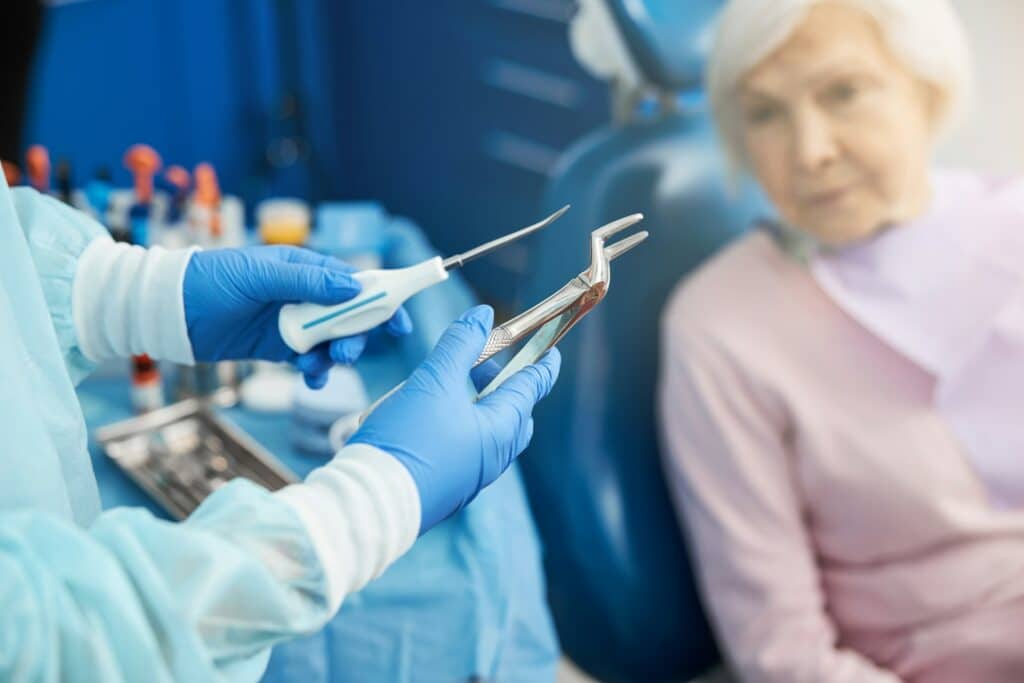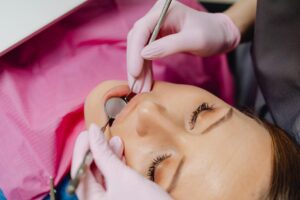Keeping your teeth and gums in top shape is vital to overall health and well-being. Sometimes, though, dental extractions become a necessary part of maintaining that health. Extractions can sound a bit intimidating, but they are often straightforward procedures that help resolve issues before they develop into serious problems. Getting rid of a problematic tooth might be the best option when it threatens the comfort and function of your mouth.
Many people might feel a bit anxious about undergoing a dental extraction. It’s natural to worry about the unknown, but knowing more about the process can help ease your concerns. Dental professionals are equipped with the expertise and tools to ensure the procedure is as smooth and painless as possible. By understanding why extractions are needed and what the procedure involves, you can approach the situation with confidence.
Common Reasons for Dental Extractions
There are several reasons why a dentist might recommend an extraction. Here’s a look at some common scenarios:
– Severe Decay: When a tooth is too damaged by decay, it might be beyond repair. In such cases, extraction prevents the decay from spreading to other teeth.
– Infection: A tooth infection can severely affect your gums and other teeth. Removing the infected tooth can be a crucial step in preventing further oral health issues.
– Overcrowding: Sometimes, teeth don’t have enough space to align properly. Extracting one or more teeth can help relieve overcrowding, which is often necessary before orthodontic treatments.
– Impacted Teeth: This is a common issue with wisdom teeth, which can become stuck beneath the gums. Impacted teeth can cause pain, discomfort, and potential damage to adjacent teeth.
By addressing these issues through extractions, dentists can help preserve the overall structure and health of your mouth. Each of these situations has its own challenges, but in skilled hands, a dental extraction addresses these problems safely and effectively. This preventive measure often saves you from more extensive dental work in the future.
The Process of Dental Extraction
Once it’s decided that a tooth needs removing, the dentist will guide you through what’s involved in the extraction. There are generally two types: simple and surgical. A simple extraction deals with a visible tooth, often involving a straightforward pulling process using specialized tools. For teeth not easily accessible, such as those broken off at the gum line or impacted, a surgical extraction is necessary. This method might require an incision in the gum to access the tooth.
Here’s what you can expect during a dental extraction:
1. Numbing: The dentist applies a local anaesthetic to the area around the tooth to prevent any pain.
2. The Extraction: Using appropriate instruments, the dentist loosens and removes the tooth.
3. Post-Removal Care: Once the tooth is out, a gauze pad is placed on the extraction site to stop bleeding and help a blood clot form. This blood clot is part of the natural healing process.
Getting familiar with these steps can help ease any anxiety you might feel about the procedure. A friendly chat with your dentist can demystify the experience and ensure you know what to expect before, during, and after the process.
Aftercare Tips Following a Dental Extraction
Taking care of yourself after an extraction is really important for ensuring a smooth recovery. Here are a few tips to help manage your aftercare effectively:
– Pain Management: You might experience some discomfort once the numbness wears off. Over-the-counter pain relievers can often help alleviate any soreness.
– Swelling Control: Applying a cold compress to the outside of your cheek near the extraction site can help reduce swelling and provide some comfort.
– Dietary Adjustments: It’s best to stick with soft foods for a few days. Things like yogurt, applesauce, and soup are both gentle and nourishing, making them easy choices while your mouth heals.
– Proper Hygiene: Keep the area clean, but be gentle. While brushing and flossing, avoid the extraction site directly to prevent dislodging the forming blood clot.
Each patient’s needs vary, so it’s important to follow specific instructions given by your dentist. Following these tips not only helps prevent complications but also sets the stage for a healthy recovery.
Why Choose Pickering for Dental Extractions
In considering a place for your dental care, knowing that the experts there prioritize comfort and quality can make all the difference. Dental services in Pickering are trusted for their professional approach and dedication to ensuring patients feel relaxed and informed throughout their procedures.
The focus on providing the best care ensures that you aren’t just a number but part of a community of care. This level of attentiveness can make a significant difference in your overall experience, from the initial consultation to post-procedure follow-ups.
Keeping Your Smile Healthy in Pickering
Maintaining your dental health is a lifelong journey, and regular check-ups play a key role in keeping your smile in great condition. By scheduling visits and staying proactive with your care, you can prevent many common dental issues.
Beyond the dentist’s chair, adopting healthy dental habits will benefit your overall wellness. Brushing twice daily, flossing regularly, and ensuring a balanced diet all contribute to strong teeth and gums. Remember, the best way to handle dental problems is to prevent them from arising.
If you’re considering a Pickering dental extraction, trust Pickering Dental Services to guide you through the process with care and expertise. With a focus on ensuring comfort and quality, our team is dedicated to helping you maintain your oral health while making every visit a positive experience. Learn more about our services and how we can support your dental needs by reaching out to us today.



